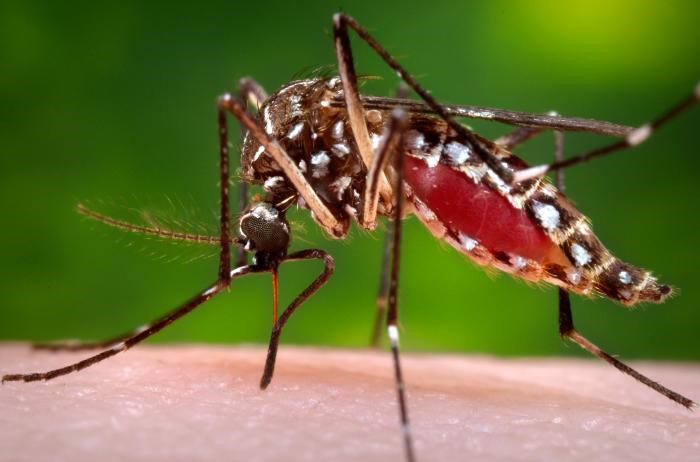- 27-Sep-22
What is Dengue Virus?
The virus that causes dengue fever infects people when they are bitten by infected mosquitoes. Mosquitoes that carry Aedes aegypti and, to a lesser amount, The disease is mostly spread by Ae. albopictus mosquitoes. Dengue virus is the name of the virus that causes dengue fever.
Dengue Virus in Pakistan
Dengue fever has a year-round national risk in Pakistan. According to the National Institute of Health (NIH) Islamabad, there were 22,938 cases of dengue fever reported in Pakistan in 2017, more than 3,200 cases in 2018, 24,547 cases in 2019, and 3,442 cases in 2020. A total of 48,906 cases including 183 deaths (Case Fatality Ratio (CFR): 0.4%), were reported in the nation between 1 January and 25 November 2021. Cases increased in 2021 especially in Lahore and the twin cities of Rawalpindi and Islamabad.
According to the District Health Officer, the COVID-19 pandemic has put a tremendous strain on public and private hospitals in Islamabad during the second half of 2021 due to the continuous increase in dengue fever (DHO) patients. On October 12 2021 the Punjab Government collaborated with the Secretary-General (SG) of PRCS to effectively address the virus outbreak in Lahore and contain the disease epidemic in Rawalpindi and Islamabad. Dengue fever cases in Islamabad steadily increased in October and November of 2021. During dengue surveillance in Islamabad city, 53 different locations had dengue larvae. Tarlai Kalan had the most reported cases followed by Koral, Alipur, and Tarnol.
Any vector control programme must include health education to give the public correct information and scientific knowledge about transmitted diseases and associated vectors. Understanding the life cycle, ecology, and biology of the vector, which promotes good practises, helps people better understand the virus. The dengue fever outbreak in Rawalpindi and Islamabad largely subsided by mid-December 2021, however isolated cases of the illness were still being sometimes reported in the area. Despite the beginning of winter, dengue cases were still being reported in government hospitals. As devastating floods ravage Pakistan, affecting more than 33 million people, another major threat is looming. Public health experts have warned that there is a growing risk of mosquito-borne diseases such as dengue spreading across the country.
Pakistan is already grappling with an increase in dengue fever, and this year's unusually early monsoon rains have created favorable conditions for mosquito breeding. Extreme weather events such as droughts, heat waves, floods and heavy rains are becoming more and more frequent in much of the world. And of the many infectious diseases projected to be exacerbated by climate change, a startling new study concludes that mosquito-borne diseases like dengue will be hit hardest. According to a detailed report from the National Institutes of Health (NIH), 24,967 cases of dengue virus have been reported nationwide, resulting in 67 deaths. Sindh remains one of the hardest-hit provinces, with 7,951 cases and 33 deaths from the mosquito-borne disease.
Khyber Pakhtunkhwa had 6,412 dengue infections and seven deaths, followed by Punjab with 5,202 infections and 15 deaths. Islamabad reported 1,991 dengue cases and 6 deaths.3,162 and 249 cases of dengue were reported in Balochistan and Azad Jammu and Kashmir, respectively. The government launched a dengue control campaign, including raising public awareness in response to the alarming number of cases in the country, and took special measures to curb the spread of the disease in dengue hotspots.
Dengue Virus Symptoms and Treatment
Dengue Symptoms
Many people may not show any signs or symptoms of dengue.
When symptoms do appear, they frequently begin four to ten days after being bitten by an infected mosquito and may be confused with other illnesses like the flu.
Dengue fever causes any of the following signs and symptoms in addition to a temperature of 104 F (40 C) or higher:
-
Headache
-
Muscle, bone or joint pain
-
Nausea
-
Vomiting
-
Pain behind the eyes
-
Swollen glands
-
Rash
Within a week or so, most people will recover. In some circumstances, the symptoms can be severe and even fatal. Dengue shock syndrome, dengue hemorrhagic fever or severe dengue fever are the terms used to describe it. Damaged and leaking blood vessels are a sign of severe dengue fever. The number of platelets in your blood - cells that help blood clot - also decreases.
This can lead to internal bleeding, shock, organ failure, and even death.
A life-threatening emergency known as severe dengue fever can soon show warning signs. Warning indicators may include the following and usually appear within the first day or two after the fever subsides:
-
Severe stomach pain
-
Persistent vomiting
-
Bleeding from your gums or nose
-
Blood in your urine, stools or vomit
-
Bruising that is actually bleeding under the skin
-
Difficult or rapid breathing
-
Fatigue
-
Irritability or restlessness
Dengue Treatment
There is no specific medication for dengue fever. Vaccines against dengue disease are still being developed. Right now, the best ways to prevent disease in areas where dengue fever is endemic are to avoid mosquito bites and take steps to reduce the mosquito population. Drink a lot of fluids as you recover from dengue fever. If you experience any of the following dehydration symptoms contact your doctor straight away:
- Decreased urination
- Few or no tears
- Dry mouth or lips
- Lethargy or confusion
- Cold or clammy extremities
Integrated Medical Care Hospital ( IMC Hospital)
If you experience symptoms of the Dengue virus, you should see your doctor or consult the physicians at Integrated Medical Care Hospital (IMC Hospital). IMC Hospital is a reputable institution and often termed as one of the best hospitals in Pakistan. At IMC Hospital A pool of qualified, senior and certified doctors, having extensive clinical and professional experience, serving at the most renowned and respectable medical institutions across the world are now available under one roof.

 Map
Map










